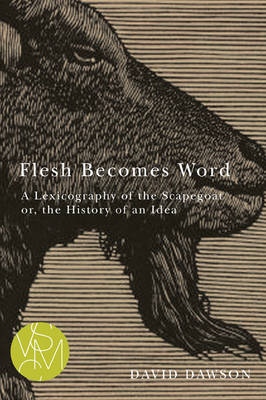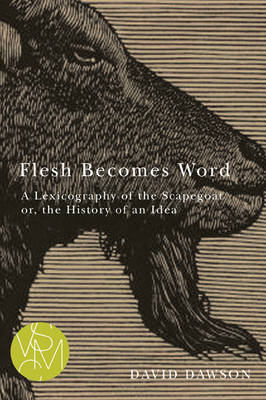
- Afhalen na 1 uur in een winkel met voorraad
- Gratis thuislevering in België vanaf € 30
- Ruim aanbod met 7 miljoen producten
- Afhalen na 1 uur in een winkel met voorraad
- Gratis thuislevering in België vanaf € 30
- Ruim aanbod met 7 miljoen producten
Zoeken
€ 27,95
+ 55 punten
Omschrijving
Though its coinage can be traced back to a sixteenth-century translation of Leviticus, the term "scapegoat" has enjoyed a long and varied history of both scholarly and everyday uses. While WilliamTyndale employed it to describe one of two goats chosen by lot to escape the Day of Atonement sacrifices with its life, the expression was soon far more widely used to name victims of false accusation and unwarranted punishment. As such, the scapegoat figures prominently in contemporary theories of violence, from its elevation by Frazer to a ritual category in his ethnological opus The Golden Bough to its pivotal roles in projects as seemingly at odds as Jacques Derrida's deconstruction of Western metaphysics and René Girard's theory of cultural origins. A copiously researched and groundbreaking investigation of the expression in such wide use today, Flesh Becomes Word follows the scapegoat from its origins in Mesopotamian ritual across centuries of typological reflection on the meaning of Jesus' death, to its first informal uses in the pornographic and plague literature of the 1600s, and finally into the modern era, where the word takes recognizable shape in the context of the New English Quaker persecution and proto-feminist diatribe at the close of the seventeenth century. The historical circumstances of its lexical formation prove rich in implications for current theories of the scapegoat and the making of the modern world alike.
Specificaties
Betrokkenen
- Auteur(s):
- Uitgeverij:
Inhoud
- Aantal bladzijden:
- 220
- Taal:
- Engels
- Reeks:
Eigenschappen
- Productcode (EAN):
- 9781611860634
- Verschijningsdatum:
- 1/01/2013
- Uitvoering:
- Paperback
- Formaat:
- Trade paperback (VS)
- Afmetingen:
- 152 mm x 226 mm
- Gewicht:
- 294 g

Alleen bij Standaard Boekhandel
+ 55 punten op je klantenkaart van Standaard Boekhandel
Beoordelingen
We publiceren alleen reviews die voldoen aan de voorwaarden voor reviews. Bekijk onze voorwaarden voor reviews.











